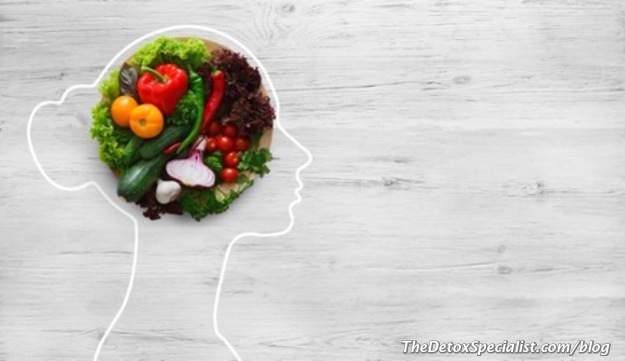
Let’s face it, we live in a world where so many of us strive to eat healthily; however, we don’t know the correct way to go about it. With the vast growth of social media and the internet, there seem to be endless ways to eat healthy, but how do we know which one to pick? Well, there are many things to take into consideration. Whether it’s a short-term goal, a long-term goal, or a healthy lifestyle you are trying to implement, you must go about dieting in a way that positively boosts your mental health.
Why Eating Healthy is Important
To start, healthy eating is something everyone should strive to do daily. The benefits are endless such as healthy bones, muscles, heart health, etc. However, eating healthy can also give you a natural energy boost to get through your day and lower your risk of getting cancer. For those who have gut or digestive issues, healthy eating will reap the rewards, as you can finally eat meals and snacks without your stomach hurting, bloating, or needing immediate rest.
Depending on your gut issues or dietary restrictions and intolerances, it’s best to do one to two-week trial runs of cutting foods out of your diet and see how your body responds. Furthermore, eating healthy can also improve your mental health.
Related reading: How Can Detox Impact Your Mind?
Beyond Diet: Lifestyle Factors and Mental Health
Aside from eating healthy, lifestyle factors such as exercise, sleep, and stress management also affect mental health. Here, we can take a deep dive into each of the three.
Exercise and its impact on gut health and mental well-being
When it comes to being healthy and eating healthy, there’s always going to be a mention of exercise and how you must pair a workout with your overall lifestyle. Although this may be true for some, implementing a rigorous exercise routine won’t make or break your healthy habits.
One of the biggest ways exercise improves your health is your mental health. When you exercise, your brain releases hormones and chemicals. Endorphins and serotonin are commonly released chemicals when exercising and are often referred to as ‘happy chemicals’ because you get a boost in your mood. Due to this chemical release, some individuals can lower their risk of being diagnosed with a mental illness or use it to treat their depression and anxiety.
To get an endorphin release, you don’t need to work out at high intensity and be drenched in sweat each time. You can release these chemicals by going on a simple thirty-minute walk, yoga, swimming, dancing, and more. Although weight lifting, HIIT routines, and the gym may seem like the only options, only do them if they’re something you truly enjoy!
Stress management techniques for a healthy gut
Stress plays a major role in your gut health. Some of those indigestion and stomach problems you’re having may not even be the food you’re eating, but rather your stress. For example, if you cannot balance your stress levels, your gut health could turn into serious IBS or IBD problems.
Stress can lead to gut problems because the stress and tension in your body can increase physical tightness throughout your body, limiting proper digestion flow to process and release digested food. Some little changes you can make to improve your stress and cortisol levels are exercise, breathing exercises, sauna sessions, and reducing caffeine intake.
Related reading: Mind Detox: Can Detox Reduce Stress and Anxiety?
The importance of sleep in maintaining gut and mental health

Next, let’s dive into sleep and its pivotal role in your gut and mental health. Regarding your gut health, studies have shown that a lack of sleep can lead to gastrointestinal symptoms and bowel problems. Not to mention, it’s proven that poor sleep can also lead to poor eating habits, as you will likely choose food options that are quick, convenient, and comforting. Sleep and mental health play a similar role, as a lack of sleep is a cause of mental illnesses such as depression, anxiety, and, in severe cases, suicidal ideation.
Now that we know the serious effects sleep has on your mental and gut health, let’s learn how to get a good night’s sleep. To start, minimize or eliminate blue light and bright light 30–60 minutes before bed. This gives your body time to understand that it’s time to shut down and wind down for the night.
Regarding food, it’s best to avoid drinking alcohol or a large portioned meal right before bed, as it can lead to improper digestion, overnight discomfort, and even sleep disturbances. For extra help, there are also sleep playlists, shows, and other creations you can play in the background until you fall asleep—just ensure that blue light isn’t hitting you all night long.
Practical Tips for a Gut-Healthy Diet
Now that we have extensively covered exercise, sleep, and stress with your gut and mental connection, let’s look at practical tips to start with a healthy diet to improve your overall health.
What foods do I start with?
Some say it’s important that your plate looks like a rainbow and covers every type of food from each nutrient category, such as protein, veggies, fruit, wheat, and more. Although this is a great goal to have, it may not be realistic for everyone to achieve. Therefore, it’s best to start small and ensure you target protein, biotics, and fiber in your diet.
For the protein portion of your plate, this can be seafood, red meat, chicken, or tofu, or if you’re feeling like a lighter option, you can opt for peanut butter or protein bars. Protein is essential because it helps you stay full longer and is your main fuel source to get your body and mind through your day.
Targeting prebiotics and probiotics on your plate is next. These include asparagus, bananas, onions, garlic, yogurt, and fermented foods (think kombucha, kimchi, probiotic yogurts, and more). It is essential to target your probiotics and prebiotics, as these foods will target your gut the most because you are consuming living microorganisms, living cultures, and nutrient-dense fibers to keep them alive. Consuming these foods introduces good bacteria into your gut, helping to keep your gut clean, healthy, and balanced. These foods are also the most gut-friendly for anyone with food intolerances or allergies.
Related reading: The Benefits of a Raw Food Detox Diet on your Body and Mind
Lastly, let’s look at fibers. Fiber is a carbohydrate that helps with digestion and is essential for waste production and avoiding constipation. Some common fiber foods are wheat, oats, beans, dried fruit, nuts, and more. You can get fiber as a supplement if these foods aren’t your favorites.
By making these small modifications to your plate, you’ll see results in your gut and mental health. From there, you can begin changing your diet to include more vegetables, fruits, and more, but this is a good start to target the essentials, eat healthy, and ensure you are eating your daily caloric amount.
Moving Forward with Your Health
Now, you can see the importance of a healthy diet and how it impacts your mental health. It may be challenging not knowing where to start; however, with a few dietary changes, exercise, sleep, and stress management tips, you’ll see results in no time. With any change in routine, once you can get through the first few weeks, it will become a part of your new lifestyle and something you’re excited to implement into your daily life.
Ashley Nielsen
 Ashley Nielsen earned a B.S. degree in Business Administration Marketing at Point Loma Nazarene University. She is a freelance writer who loves to share knowledge about general business, marketing, lifestyle, wellness, and financial tips. During her free time, she enjoys being outside, staying active, reading a book, or diving deep into her favorite music.
Ashley Nielsen earned a B.S. degree in Business Administration Marketing at Point Loma Nazarene University. She is a freelance writer who loves to share knowledge about general business, marketing, lifestyle, wellness, and financial tips. During her free time, she enjoys being outside, staying active, reading a book, or diving deep into her favorite music.



